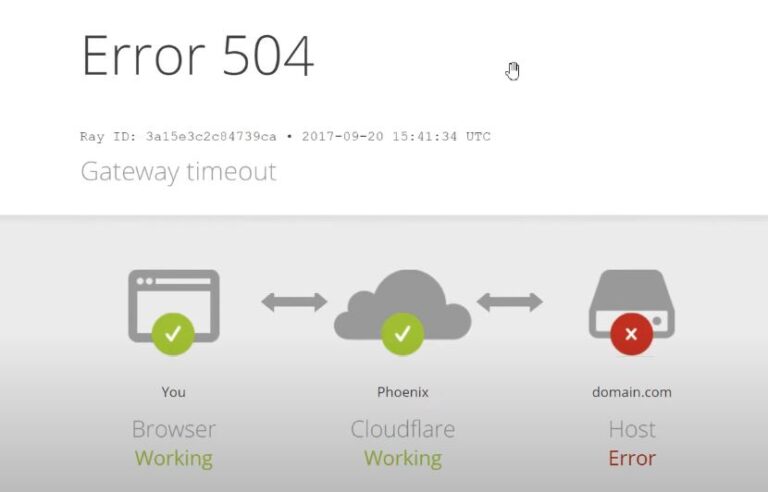Users on different continents have recently experienced a frustrating bug when trying to start meetings using Google Meet—a 504 Gateway Timeout error that notably occurred on desktops but was unaffected by mobile access. Even though it was only temporary, this particular disruption severely impacted the continuity of workflow for the many professionals, educators, and creators whose sessions were abruptly interrupted. Even though this timeout was technical in nature, its effects went well beyond digital platforms, briefly stopping the flow of real-time collaboration.
By definition, a 504 error happens when a proxy server or gateway waits too long for an upstream server to respond and then gives up. Comparable to ringing a doorbell for minutes without getting a response, you eventually give up and walk away. Google Meet depends on a well-coordinated backend sequence, particularly when it is heavily loaded. The session may end if there is any disruption in that flow, such as a third-party API or an overloaded authentication server.
Google Meet Error 504 – Essential Quick Guide
| Feature | Details |
|---|---|
| Error Code | 504 Gateway Timeout |
| Affected Platform | Google Meet (Desktop mainly; mobile often unaffected) |
| Nature of Error | Server-side (5xx class) |
| Common Triggers | Server overload, faulty proxies, external API delays |
| User-Reported Symptoms | Blank screen, timeout message, limited loading, mobile still functional |
| Temporary Fixes | DNS flush, router reboot, use mobile device |
| Google’s Response | Error acknowledged, issue escalated to Meet engineering team |
| Diagnostic Steps | Review server logs, trace route, verify DNS, check status dashboard |
| Societal Relevance | Impacts education, telehealth, media events, corporate ops |
The Google Meet disruption sparked an online debate because it was strikingly similar to previous outages that affected platforms like Zoom and Microsoft Teams. Users noticed an interesting trend in Google Help forums and Reddit threads. The same meetings could be joined instantly through iOS or Android while desktop sessions were ending. This revealed a more subtle aspect of the infrastructure, indicating that mobile requests might be sent via different, less crowded endpoints, which is a very obvious sign of regional server stratification.
The timing couldn’t have been worse for content producers. Tanya Zhou, a fashion blogger and digital entrepreneur, had just started a temporary masterclass when the error occurred. Hundreds of refund requests resulted from the interruption of her livestream. She pointed out that “everything was planned to the second, but tech had other ideas.” Despite being anecdotal, these tales highlight the genuine emotional burden associated with seemingly innocuous error codes. The annoyance stems from lost moments that cannot be recovered, not just from downtime.
Google acknowledged the problem and forwarded it to the Meet team in a timely manner. Users were encouraged to keep an eye on the Google Workspace Status Dashboard and think about temporarily switching devices or networks, even though no root cause was disclosed right away. This temporary solution gave impacted users a sense of agency because they were able to get around the problem by using mobile entry or DNS updates, even though it wasn’t particularly effective for everyone.
IT managers started monitoring packet loss and connection lags by utilizing sophisticated diagnostic tools, which indicated bottlenecks in the upstream communication layer. The Meet server infrastructure acts like an air traffic control system, especially during periods of high traffic, such as exam weeks, conference live-streams, or virtual public events. Everyone begins to circle after one plane is misdirected.
In general, tech companies like Google reduce such risks by forming strategic alliances with content delivery networks and load-balancing technologies. However, real-time systems are being forced to step outside of their comfort zones as usage patterns change quickly, particularly in the wake of the pandemic. Such outages are not only inconvenient for corporate teams that depend on Meet to pitch clients or onboard new hires, but they may also be expensive.
As hybrid work becomes more commonplace, server resilience is no longer a backend problem; rather, it is now expected. When a mistake occurs, the focus changes from brand trust to technical dependability. With its expansion to include therapy sessions, virtual classrooms, and even court hearings, Meet now bears both a functional and an emotional burden. Every bug gently undermines user trust, igniting conversations about platform redundancy and backup procedures.
In certain situations, tech-savvy users found that clearing DNS caches, restarting routers, or using Google Public DNS (8.8.8.8) was surprisingly inexpensive and efficient. Others looked into browser extensions that compel users to use different connection methods. However, with only a vague code and no obvious next step, the error page remained an insurmountable barrier for most people, especially those who are not as tech-savvy.
The transient nature of the 504 error is what makes it so elusive. Depending on server configuration or network congestion, it could disappear in a matter of minutes or last for hours. This uncertainty wears down professionals who rely on split-second uptime. “Seamless tech is the foundation of our routines,” said systems engineer Malik Bhatti. “The routines fall apart when the technology malfunctions.”
Tolerance for errors like 504 will drastically decrease in the upcoming years as AI-integrated meeting platforms proliferate and smart summarization features are widely embraced. There is a call for prevention as well as resolution. This entails spending money on incredibly robust backend systems, especially cutting-edge routing logic, and early detection frameworks that find and fix vulnerabilities before users even realize they exist.
Not everything was lost, though. Community experts shared significantly better diagnostic techniques and long-term configuration changes as a result of the incident, which generated fruitful discussions across forums. Future interruptions can be handled more quickly by incorporating improved API monitoring and putting in place graceful fallback features. Some platforms have even begun to provide SMS-based meeting rejoin links or temporary offline modes, which are extremely effective under outage stress.
